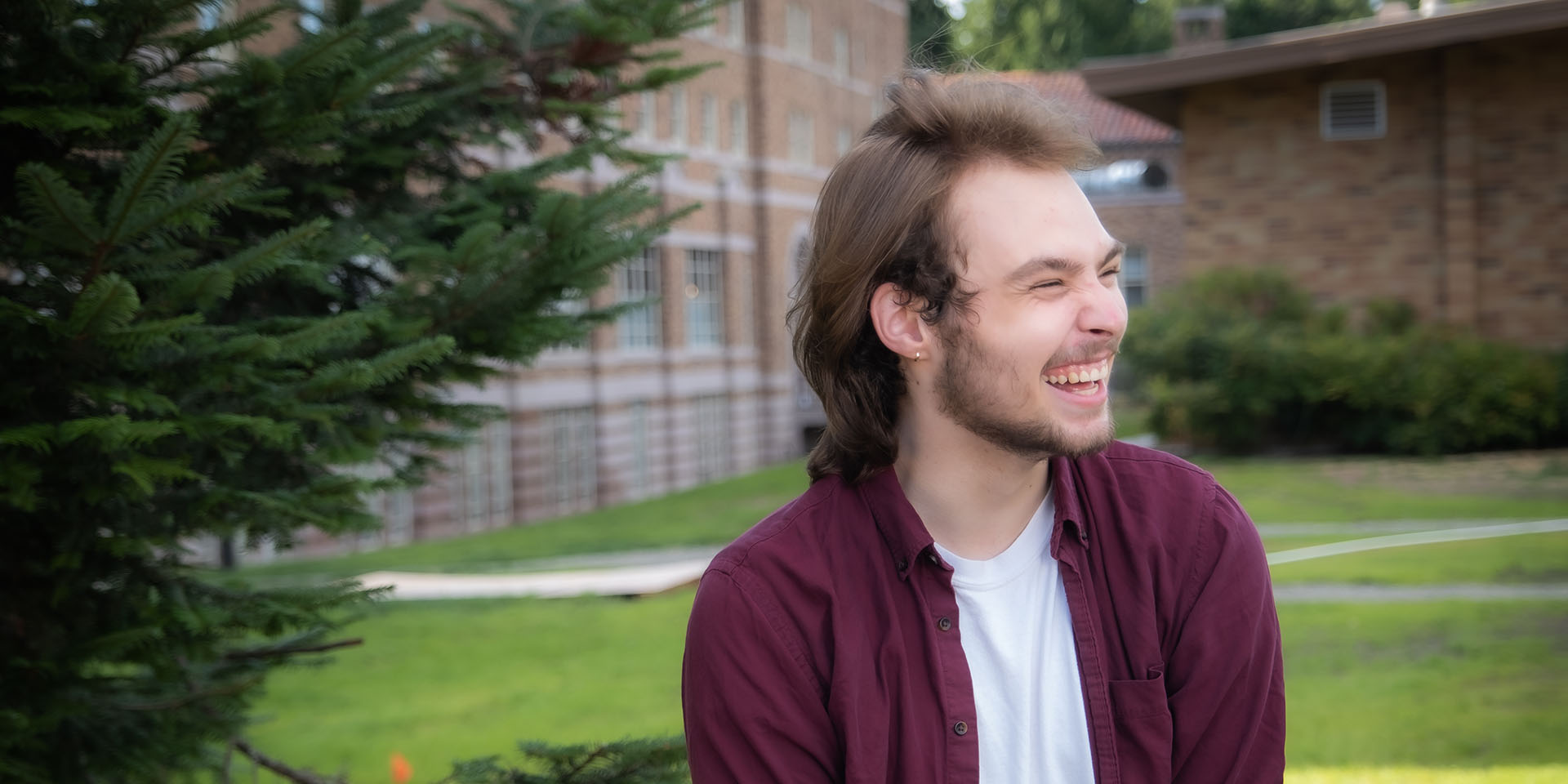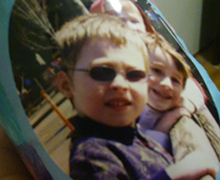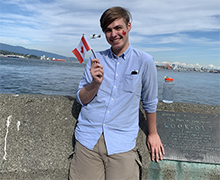
Meet Sam
I Said Yes to Mental Health Care That Gave Me a Future
By Sam Duenwald
 When I was a kid, I always did well in school and at home. I was focused on getting good grades and would help take care of my younger siblings. I felt happy and was known as being the fun and successful kid.
When I was a kid, I always did well in school and at home. I was focused on getting good grades and would help take care of my younger siblings. I felt happy and was known as being the fun and successful kid.
I started noticing the symptoms of mental illness taking over my life in seventh grade. After getting sick and missing two weeks of school, I felt really anxious about going back because I had missed a lot of work and my grades were dropping. I avoided dealing with it by continuing to stay home, a situation that spiraled into more missed work.
The rest of the year was stressful for both me and my family. I never returned to school in seventh grade, but did start seeing a psychiatrist at Seattle Children’s and took medication for my anxiety.
My lowest point
When eighth grade approached, I told myself it was time to go back – and I did, for about two weeks. Then my grandmother died, and I left school to go to her funeral. This time, depression played a bigger part. I missed school and hated myself for it, then got into a cycle where I hated myself more and more for every day I missed.
That February, I hit my lowest point: I tried to kill myself.
I told my dad about my suicide attempt, and he and my mom took me to Seattle Children’s for inpatient care. I remember thinking it was weird to see all the other kids there. They just looked like normal people, but I knew that – like me – everyone was there for a reason.
I spent a week in the structured environment of the Psychiatry and Behavioral Medicine Unit, where I started taking an antidepressant and met a new psychiatrist, Dr. Carol Rockhill. We made a plan for getting me back to school, but in a way that didn’t put pressure on me. I stayed home awhile longer, then began spending time in the school office and eventually helping the office staff with tasks. And finally, during the last two weeks of my eighth grade year, I went to classes.
I got tired of it
 High school was a new experience, partly because my dad was the principal of the school I attended. Once again, I left school for an illness and the idea of returning became nerve-wracking and anxiety-inducing. My dad would drive me to school, and then I’d hide in the car or in a closet in the building, and my paraeducators would bring work to me.
High school was a new experience, partly because my dad was the principal of the school I attended. Once again, I left school for an illness and the idea of returning became nerve-wracking and anxiety-inducing. My dad would drive me to school, and then I’d hide in the car or in a closet in the building, and my paraeducators would bring work to me.
At one point, I got tired of it. I decided I didn’t want to do this anymore and started going to classes. I was really behind, so my teachers let me work over the summer to pass – they were so nice.
Then sophomore year came, and that’s when things really turned around. I pretty much just did it – I went to classes and started making new friends. I felt like it was easier to talk about my depression and anxiety, and that was deisolating. I joined the orchestra and fell in love with the bass guitar; I learned that playing the bass helps a lot when I’m feeling depressed.
My last two years of high school weren’t easy, but I was able to keep making progress. I saw Dr. Rockhill every three months to check my medications; working with her to find the right dosage was very helpful, and the medications were effective for me.
Looking toward the future
 These days, I’m a student at the University of British Columbia, which has been a great experience. College is stressful, but it’s also fun – and I’ve met a lot of new people. My plan is to hopefully go to medical school, and I’m interested in emergency medicine.
These days, I’m a student at the University of British Columbia, which has been a great experience. College is stressful, but it’s also fun – and I’ve met a lot of new people. My plan is to hopefully go to medical school, and I’m interested in emergency medicine.
I still have depression, but I’m not depressed. I take medicine every day, and I think about it in the same way I think about my asthma. I need medication to breathe and I need antidepressants to live.
If I could tell other kids with anxiety or depression one thing, it would be this: It’s a part of you and it’s probably going to be there for a while, but you can learn how to deal with it and come to grips with it. I did.
